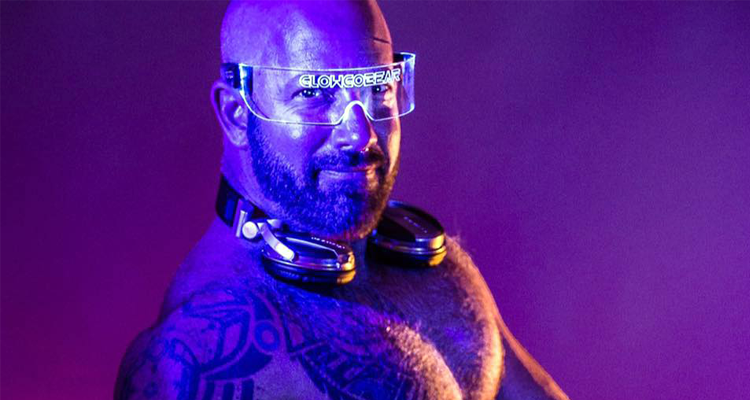
Future U.S. Rep. Vicky Hartzler once warned that if Missouri didn’t ban same-sex marriage in its constitution, judges would dictate “new forms of families to the citizens of our state.” More than 70% of Missouri voters approved the ban in 2004.
As recently as 2014, a year before the U.S. Supreme Court made same-sex marriage the law of the land, a group of Republican lawmakers tried to impeach then-Gov. Jay Nixon over an executive order allowing same-sex couples legally married in other states to file joint Missouri tax returns.
As public support for LGBT rights has increased over the past 20 years, Republican rhetoric against the gay and transgender community has shifted. Once marked by open hostility, it has moved to fights about transgender access to healthcare, bathrooms and athletics.
But gay lawmakers say homophobia continues to linger in GOP politics and that the recent backlash to placement of an LGBT history exhibit at the Missouri Capitol only serves as proof.
“I think the majority party has done a good job of not allowing any LGBT issue to come up, because they know they have a sizable group within their caucus that are going to go to a 1950s-Joseph-McCarthy extreme in their views,” said Sen. Greg Razer, a Kansas City Democrat who aggressively condemned the decision by Gov. Mike Parson’s administration to remove the display from the Capitol earlier this month.
The battle over the exhibit — which recounts the role of Kansas City residents in the gay rights movement — illustrates how a hidebound faction of Missouri Republicans continue to approach LGBTQ rights at a moment when many would rather focus on fighting vaccine mandates or pushing restrictions on abortion.
“They know they have homophobic members that are going to make them look atrocious,” Razer said. “And you can see by this exhibit that they’re not willing to stand up to that homophobia.”
Missouri is not a national outlier. In several Republican-controlled legislatures, bills to prevent discrimination against members of the LGBTQ community have stalled as LGBT activists and advocates have pushed back on legislation targeting trans youth.
In Congress, a bill to provide federal non-discrimination protections is stuck in the Senate, which Democrats control by a razor-thin margin.
“Progress has been swift, but it’s been cultural progress,” said Cathy Renna, the communications director at the National LGBTQ Task Force. “I think the institutional and legislative progress is where the rubber hits the road and that’s where we are right now.”
‘A tough vote’?
LGBT lawmakers say the persistent power of homophobia in Missouri is best illustrated by the anti-LGBT-discrimination proposal that has languished in the General Assembly for 23 years.
Rep. Tom Hannegan is sure next year won’t be the last.
“There’s really not an appetite,” the St. Charles Republican said. “People are planning for re-election time.”
Hannegan and Razer, who are among the six openly LGBT Missouri lawmakers, have in recent years become the primary sponsors of the Missouri Nondiscrimination Act (MONA).
MONA would give LGBT Missourians the same civil rights protections afforded other minorities in the state’s human rights statute. It would prohibit discrimination based on sexual orientation and gender identity in housing, employment and public accommodations.
Under Missouri law, it remains legal to deny someone an apartment lease or service at a restaurant for being LGBT or even perceived as being LGBT. Last year, a U.S. Supreme Court decision extended some employment protections in the federal Civil Rights Acts to LGBT people.
In the meantime, many Missouri communities have moved on. Over the two-plus decades the measure has stalled, about 20 local governments have passed their own anti-discrimination ordinances.
MONA passed the state Senate once, in 2013, and a House committee in 2018. Gov. Mike Parson was among those who voted for it in the Senate and in late 2018 as governor said he was open to signing it.
Razer and Hannegan said they’ve heard numerous explanations for the lack of interest among Republican leaders. They include falsehoods such as that the legislation would require churches to perform gay marriages (religious institutions are exempt from the state’s nondiscrimination statute). There is also opposition to making gender identity a protected class as well as concern that expanding the classes could lead to frivolous lawsuits against businesses.
While many lawmakers have told them they don’t see the need for the bill, both said they’ve made progress with colleagues who have had “awakenings” on acceptance of LGBT people.
“The votes will lag behind the awakening,” Razer said.
In the end, Hannegan said, it usually comes down to lawmakers fearing backlash in their districts, which he called “a cop-out.”
“It would be very hard for some people in certain areas or certain districts to take a vote on this, because it’s controversial,” he said. “For me, I don’t think it’s a tough vote when you’re just talking about basic rights.”
Hannegan this year took the unusual procedural move of garnering enough signatures (all 46 Democrats and nine Republicans) to get the bill out of the House Children and Family Committee after Chair Mary Elizabeth Coleman, an Arnold Republican, would not schedule it for a vote. The bill did not make it to the House floor. Coleman did not respond to a request for comment.
“My party didn’t especially like that I did that, but there were members that had the courage to sign it,” Hannegan said.
While attempts to protect LGBT people from discrimination have stalled, several bills have been introduced in the legislature targeting transgender people, including their access to healthcare and ability to participate in sports teams matching their gender.
Renna said that as the conservative movement has lost the battles over same-sex marriage and employment discrimination, they’ve shifted their attention to the part of the LGBT community people often know the least about.
“The strategies don’t change that much,” Renna said. “Their tools are fear and ignorance. And the reality is, they shift the target depending on where they feel like they can make some progress.”
‘Old roots’
Celebrating the LGBT exhibit’s removal from the Capitol this month, legislative assistant Uriah Stark credited the intervention of two Republican lawmakers — Lamar Rep. Ann Kelley and Branson Rep. Brian Seitz — but said many others were “ready and willing to take action” to stand “for traditional family values.”
The exhibit curated by UMKC history students had been on display at the Missouri State Museum, a state park in the first-floor halls of the Capitol. It was up for just a few days before the Department of Natural Resources removed it following lawmakers’ inquiries and Stark’s complaints that the exhibit was “pushing the LGBT agenda in our state capitol.”
Some of the other lawmakers Stark named said they were not involved in the removal.
Stark, an aide for LaRussell Rep. Mitch Boggs, is a member of the Miller County Republican Central Committee and a former state director for the anti-pornography group National Decency Coalition. During the legislative session, he testified in favor of a bill that would have banned hormone treatments for transgender youth.
Razer said he has no doubt anti-LGBT sentiments are prevalent “behind closed doors” in Missouri politics. Since the exhibit’s removal, members of both parties have expressed frustration over what they call a tacit endorsement of the attitudes of GOP leaders.
Nick Myers, chair of the Missouri GOP, did not respond to requests for comment.
“I think Missouri hangs on to their old roots,” said Rep. Chris Sander, an openly gay, self-described “MAGA Republican” from Lone Jack.
He noted state statutes still include language declaring same-sex marriages invalid despite such bans having been ruled unconstitutional by the Supreme Court in 2015. In recent years, lawmakers have even proposed simply eliminating the state’s role in recognizing marriages.
Sander posted on Facebook last week about the exhibit, writing that the state should not “censor the fight by LGBT Missourians for freedom and liberty,” blaming “groupthink and stereotypes.”
“On this issue definitely I’m at odds with people in the party,” he said in an interview. “America is about freedom and liberty and if you like American values then you respect people making their own decisions or lifestyle.”
Sander shared a post he made last August after winning the primary election for his seat, alleging that the office of then-Sen. Ed Emery, a Lamar Republican, had mailed him a book of stories about LGBT people who were “once gay” and changed their sexual orientations.
Emery, who died this year, told The Star in 2019 he believed being gay was a choice and a “behavioral difference.” A former staffer for him did not respond to a request for comment on Sanders’ allegation.
The frustrations appeared to have spilled over into the party’s officials. Pat Thomas, the Missouri GOP treasurer, wrote on Twitter that the removal was “hypocrisy” when the national GOP recognizes a Republican LGBT organization, the Log Cabin Republicans.
“How can your entire party acknowledge #LGBT but a ‘party member’ wants the history removed?” she wrote.
Thomas did not return a call seeking comment.
———
(c)2021 The Kansas City Star (Kansas City, Mo.)
Visit The Kansas City Star (Kansas City, Mo.) at www.kansascity.com
Distributed by Tribune Content Agency, LLC.







